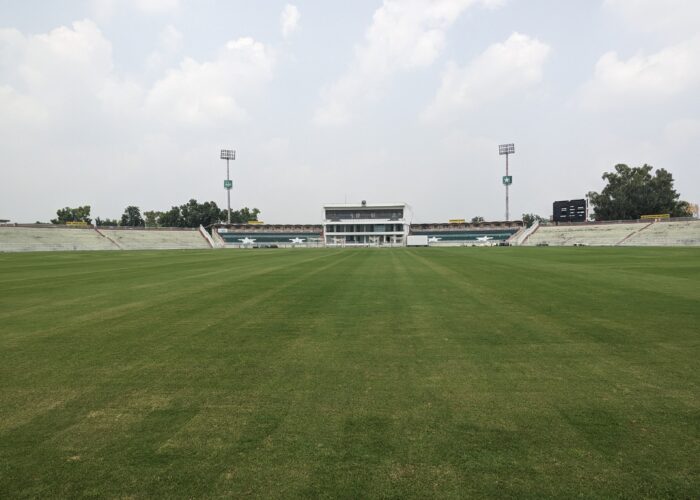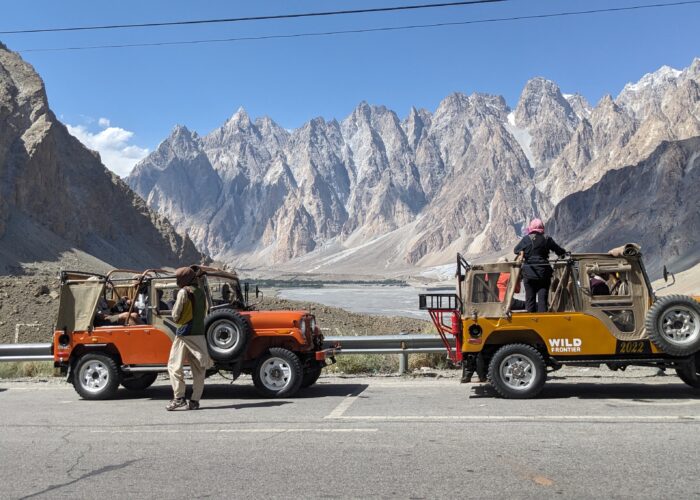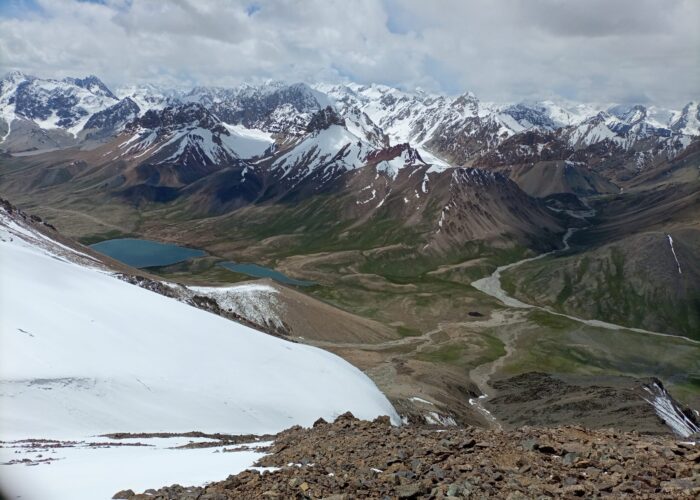For two decades, we’ve been crafting unforgettable journeys, immersing travelers in the rich tapestry of cultures, landscapes, and experiences that make our world so captivating.
With over 200 tours under our belt, we have the experience and expertise to make your next tour a success.
A thriving community of tour guides connects travelers with local experts, fostering meaningful experiences and cultural immersion.
Join Rock Valley Tours on an unforgettable journey to Pakistan’s hidden treasures. Discover stunning landscapes, vibrant cultures, and the warmth of Pakistani hospitality. Explore off-the-beaten-path destinations, where authenticity and immersive experiences await.
Simply the best guiding experience I’ve ever had. Organization was on top level, Hameed accommodated any of our needs, provided very genuine and local experience, introducing us to local culture and entertaining during long car rides. Can’t recommend enough.
Top guide and well organised. Would highly recommend Manzoor for any sort of adventure in the north..
Great experience and well organised. Will be using for future expeditions. Great service level and team
We did Sarpolaggo pass and West Muztagh pass with Rock Valley. Hameed is by far the best guide we have been with so far. Will definitely recommend!!!
Much experienced & technical equipped team for any outdoor adventure, tourism, trekking, climbing. have personally experienced a long tour with Rock Valley Tours Pvt Ltd this year, & found them highly experienced, well equipped & technical. they always love to serve the adventurous people to promote the tourism in Pakistan especially Gilgat Baltistan.
It was my first visit to Pakistan and nothing brings great comfort than having a professional guide to take you around. It was an absolute privilege of mine to receive family oriented hospitality from the staff at Rock Valley Tours. It is humbling to know that our relationship extends beyond the duration of my holiday and we are now great friends that can reminisce about about the beauty of Pakistan together. It is very rare to receive such dedicated service in the tourism industry today and that is why I would recommend Rock Valley Tours for your next visit to Pakistan. It’s beautiful, it’s Pakistan.
Overall Good. Good Service, nice people, nice country. Highly recommended.
Asif and his team have been absolutely amazing, they will go the 1000 extra miles to make your stay in Pakistan unforgettable. I would recommend them without batting an eye
Had one of the best trekking experiences with these guys. Manzoor and his team were super accommodating and reliable. Would definitely consider them again in future. Highly recommended!
We are just back from our fantastic holiday in Northern Pakistan. Our time there was fine in every way and well beyond our expectations thanks to the staff of Rock Valley Tours. Our guide Hamid Ullah was excellent: professional, funny, puntual and well organised. He facilitated for us all the aspect of the trip and met all our requests with patience and efficiency. Our driver, Mr Samad, was very confident on roads that were not very easy and the car we travelled in was always clean and cool. We feel very lucky to have been put in touch with Rock Valley Tours via TourHQ and we can recommend RVT and TourHQ to all those wishing to follow in our footsteps. We will definitely go back to Pakistan and rely on RVT while there.
I booked about a two week trek with Rock Valley Tours in October/November 2019, and Hameed and the driver Abdul were beyond amazing. Hameed seemed to know someone everywhere we went and that provided for some awesome experiences such as a wedding in Shimshal, a school visit in Buni, and actually being able to bond with local villagers in Kalash which otherwise would have not been possible because of the effects that other tourists have had on the villages. And Abdul was the very skilled driver that you need to visit some of these remote areas due to the terrain that may scare you 😉 needless to say he handled it like an absolute boss! They were extremely accomodating even as I had come to them with a very fast paced itinerary and they made it all work. Highly recommend!
I highly recommend Manzoor. I was a bit reluctant but they were both terrific – in Lahore and in Karachi Faraz was especially diligent in understanding what I was looking for and making it happen. If i go back it will be with MAnzour and staff
I can not recommend Manzoor more highly. I was originally scheduled for a two day tour of Islamabad but missed my flight. Manzoor suggested I change my tour to Lahore since the flight schedule was more convenient for the following day. It was a great suggestion and Manzoor developed a great itinerary for me and was very cooperative in answering my questions about local history, culture and politics. His English is excellent. He also assisted me in obtaining a last minute Covid test to depart the country. I will very likely return to Pakistan soon and would not consider any other guide.
I travelled to Pakistan with Rock Valley Tours,we went everywhere and we saw incredible things Manzoor and Hameed are marvellous guides,thanks to them and to the drivers
I am really happy to have visited Pakistan, the agency “Rock Valley Tours” allowed me to discover very beautiful landscapes, the guides Manzoor Hussain Spicher and Hameed Ullah are very helpful, smiling and kind, even at times. quite tense. I would do the trip again with pleasure if the opportunity presents itself Long live TUNISIA and PAKISTAN.
I spent few weeks with Rock Valley Tours Pvt LTD in August 2021 while We were headed to Shimshal Pass & Mangilik Sar expedition. It was the best time. Mr Inayat , Mr Manzoor and his whole team , They are very cooperative, Humorous and Peace-loving Guys. Management, Services , food and Trek planning 1O/1O. They tried to do their best to entertain the Visitors Specially, Traditional Dance and Summit Ceremony . I love to travel with them again. Strongly Recommended
as a Tunisian Tour Operator I was very satisfied to work with Rock Valley Tour, the trip was fabulous, the people as well as the Country. I highly recommend PAKISTAN with love. layla from Tunisia.
Been a wonderful adventure through the Northern peaks and valleys of Pakistan. Enjoyed it! Manzoor, our local guide and mentor, was truly great – knowledgeable, attentive, and highly effective in some very unexpected situations. Always there, always with a solution. And, what I personally value a lot, with a very witty and sharp sense of humour. A friend now rather than just a tour leader. Highly recommend the company and him as your inroads to the opening up Pakistan.
Rock Valley Tours are very polite and professional people, during two weeks they showed us wonderful Pakistan -with beautiful landscapes. powerful mountains and unforgettable people. the trip was great Thanks You.
Hello everyone at Rock ValleyTours it is great to be a part of such a strong network. I returned just yesterday from a wonderful trip to the North of Pakistan. @hameedullah was our tour guide for our 12 days trip. I fall short of words to tell you all how amazing this guy is, seriously! I come from a place where Men are usually the biggest trouble for Women while traveling, but this guy made sure that all four of us females & 2 kids were safe in all situations, had clean food & enjoyed to th2 fullest! I hope & pray we have more men like sir Hameed who value & respect each other no matter the background. � PS: I am totally saving cash for my next trip to the mountains with #RockValleyTours InshaALLAH tala!
Oh I simply loved it. Had an awesome experience and journey starting at #KhanpurDam. Never would have been better with #RockValleyTours Team. I sincerely thank all the team and specially #HameedUllah who played a role as amazing as Spider-Man 😀 , Supported us and encouraged us all the time from Jet-Skii to Cliff Jumping to Caving. This is the best team I’ve ever encountered with and I bet you 999k that this team won’t let you down any moment. Good times and memories with #RockValleyTours Indeed 🙂
The Northern Areas of Pakistan are an awe-inspiring place, but your experience will be completely dependant on your guide and company. My first meeting with Manzoor was my first time up north: We went to the Basecamp of the mighty K2. Since then, we went to Fairy Meadows, Hunza, Pasu, and even to his hometown village in the foreboding Shimshal. You will not find a nicer guy than Manzoor and Rock Valley Tours. Great organization, reliable equipment, and most of all good people
Thxs to Manzoor who re our tour guide for his energetic, high service-minded, creativity and willingness to give the best to his clients…We had fantastic trip to Hunza and Khunjerab! The scenaries along Karokoram highway re also awesome..On the way bk to Isalamabad, we had the chance to try new route via Shangla and Swat!! Great trip with lovely people…i will go bk again
We took a short weekend tour to Nathia Gali with them in early April. It snowed in the month of April for the first time in 35 yrs. The whole area was ill-equipped to handle the weather and we being from Karachi i.e. coming to negative temperature from 40°C didn’t help either but our tour guide Hameed Ullah was fantastic. Took care of us like anything. Helped us settle in, made us feel at home. In the middle of the trip we had to shift our hotels as the place we stayed in had put away their winter stuff like heaters, blankets etc so we had to move to a hotel with heating facilities after the first night. The whole team was very helpful about it. Shifted us to a place of our satisfaction! They were beyond exceptional. Next time when I travel again it will only be with them and with the same tour guide Hameed Ullah!!!
We took a short trip with Hameed Ullah to Nathaigali. Everything was up to the mark. I would suggest others to take good and experienced guide like Hameed Ullah for tours in Pakistan especially the northern areas. Next trip will be with them only.
Manzoor is an accomplished guide who is knowledgeable, good fun, and he understands the needs of tourists impeccably well. My tour of Lahore is unforgettable, as much for that city’s many attractions as for Manzoor’s expert navigation, commentary and local knowledge. The undoubted highlight was an unscheduled trip to the daily closing of the Pakistan 🇵🇰 India 🇮🇳 Border at Wagah. For sheer theatre, military choreography and a taste of Pakistani pride and nationalism a trip here on a Sunday afternoon is a must-see activity. With Manzoor and his trusty driver, they ensured my brief stay in Lahore was maximised, and therefore memorable. Heartily recommended!
THE BEST ROCK VALLEY TOURS IS REALLY RECOMMENDED IN YOUR BEST COUNTRY PLEASE
Hey Rock valley tours pvt ltd company i want to express my feelings about my trip to northern areas that was lead by this amazing personality Mr.Hameedullah I dont find words to admire Mr Hameedullah sahb That was guide of our tour of 4 females and 2 kids That guy made us felt like we were not alone as if We were traveling with our brother and we enjoyed the trip with security provided by this man i just loved the way hameedullah treated us. This society needs More man like him who knows how to treat and Respect women
Much experienced & technical equipped team for any outdoor adventure, tourism, trekking, climbing. have personally experienced a long tour with Rock Valley Tours Pvt Ltd this year, & found them highly experienced, well equipped & technical. they always love to serve the adventurous people to promote the tourism in Pakistan especially Gilgat Baltistan.
I am happy to write some thing about MR inayat Ullah team though it is very late but i think its my duty to Thank his team. It was very good experiance as all plan worked very well. we enjoyed our holidays and I strongly recommend him as guide.
Top guide and well organised. Would highly recommend Manzoor for any sort of adventure in the north..
Great experience and well organise
Fantastic experience. Great organisation by Manzoor and his team from Shimshal for the Shimshal Pass Trekk. Kind, courteous, and very hospitable – we had a once in a life time experience. Look forward to returning back soon for more adventures! Thank you Manzoor bhai for showing us so much of beautiful Pakistan!
My husband and I couldn’t get a visa to visit our Pakistani/American friends in the Hunza region until Inayat came to the rescue and helped us navigate the Pakistan bureaucracy. He and his staff helped us get from Islamabad Airport to Gulmit including staying in a great budget hotel and seeing sights around Islamabad until we could get a flight to Gilgit. When we arrived at our destination, we stayed with our host family, but Inayat continued to take us, including some family embers on several sightseeing trips. Although we didn’t have a set plan, Inayat was patient and easy to work with at all times. Inayat and his staff are wonderful, professional, and have become good friends. We hope to have any more visits to Pakistan with Rock Valley Tours. They are flexible and will help you with a customized tour that fits your budget, interests, and time. We are very grateful to them all.
My friend and I had a 12-day trip in Pakistan, Skardu, Hunza Valley, Passu, and Lahore from end of April to early May. Although we just had our transportation and hotel arrangements with Rock Valley Tours, Inayat has been contacting us closely and making sure if everything is fine. We met Manzoor and Hameed when we were in Hunza ! The two friendly guys came and greet us and make sure are ok and invited us to have dinner with them and their other client traveller. Thanks for your hospitality and your again and you guys are very professional. Inayat, Manzoor, Hameed and Saeed! Can’t wait for my second visit !
My first mountain experience and luckily with the best people around. I would really like to thank Manzoor for being such a great guide and a close associate who made everything look very easy. I wish Rock Valley Tour the very best and hope they keep up the great work. Hope we can plan another trip very soon
I know Manzoor since my k2 trek back in 2010. As a tour guide , he saved my freind life when he fell in crevasse between Concordia and k2 bass camp. Lately did hunza trip with my friends and office colleagues and have to say that this guy hasn’t changed n still provides top notch services to his cleintle . Very friendly and adopts to situation. Will ping u again whenever I start missing mountains
Hameed and Manzoor are very impressive. Not only ur tour guides but friends! They’re highly professional and experienced guide who can create an amazing atmosphere for you to experience the true beauty of Pakistan like a local. Thanks u guys for taking me through the most serene and mind-blowing sites of Pakistan.
Best tour company in Pakistan offering great tours with excellent, highly professional guides in one of the most beautiful corners of the world; highly recommended to all mountain lovers and explorers!
We did a tour with Hameed of Hunza and surrounds and had a wonderful time. Great service and lots of local knowledge – would recommend to a friend!
To some up Manzoor’s capability and hospitality is Epic and respectable. Will do more thrills in future for the love of mountains with Manzoor…the rock valley specialist ….!
Hey Rock valley tours pvt ltd company i want to express my feelings about my trip to northern areas that was lead by this amazing personality Mr.Hameedullah I dont find words to admire Mr Hameedullah sahb That was guide of our tour of 4 females and 2 kids That guy made us felt like we were not alone as if We were traveling with our brother and we enjoyed the trip with security provided by this man i just loved the way hameedullah treated us. This society needs More man like him who knows how to treat and Respect women
Nice trip, good support from staff and flexible plan. I love Pakistan.



